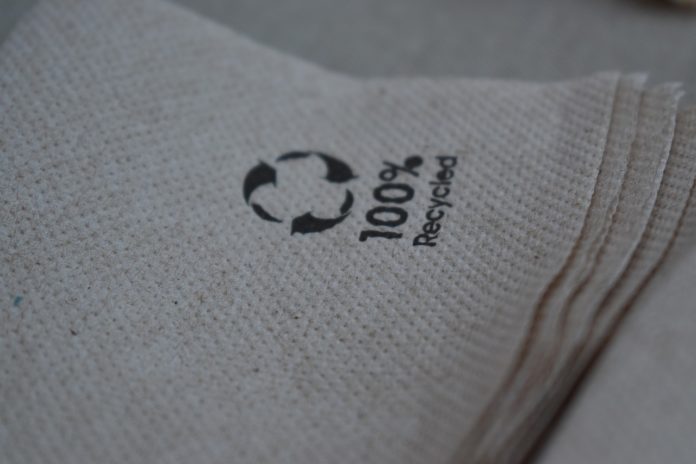Coming into the world of fashion in 2018 as a first-year fashion journalism student, I had my doubts about the industry I was about to report on. Fashion had interested me ever since I was young. But the world had changed, and I was no longer a teenager oblivious to the problems outside of my bubble.
Instead, I had to face up to the fact that fashion was implicated in one of the biggest problems facing us all – how to protect our environment. So how could I work in an industry that constantly feeds off the promise of new collections and trends, in a way that piles waste upon waste?
But things have improved since 2018. We are now in the 2020s, and more and more people refuse to follow the unwritten rules that used to govern the industry. Tolmeia Gregory – previously known as Tolly – is one of them. She began as a fashion designer but since 2015 has been blogging as a “climate justice activist and digital artist” dedicated to raising awareness on sustainability and social justice issues.
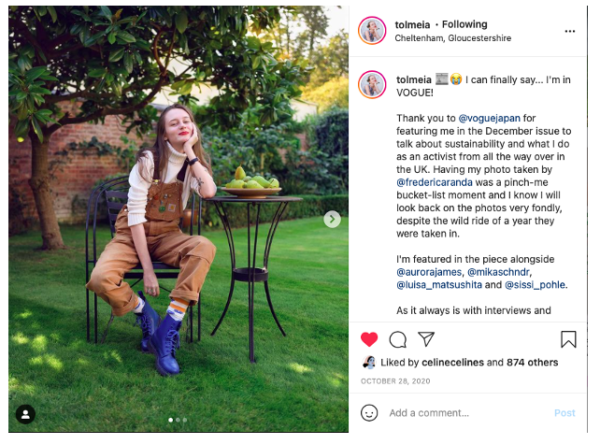
Other examples of a responsible fashionistas are Bianca Foley and Rosette Damilola Ale who blogs under the name Thriftqueenlola.
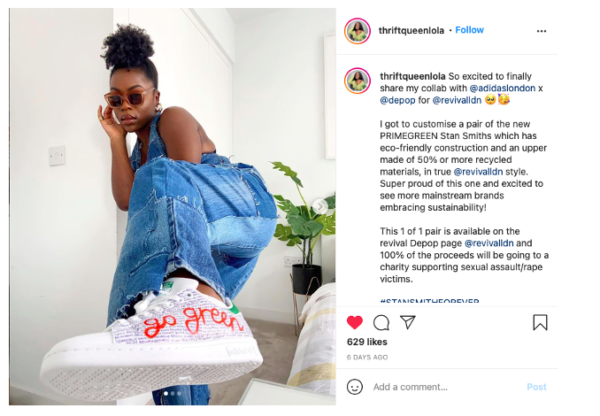
All three write about fashion in a way that is both fresh and socially engaged. One of the most important lessons I had to learn was that fashion doesn’t only equal consumption, and these three women are showing us all just that. Working with what is already in our closet is the mantra. And if you have to add new items to that closet, then shop second hand or from sustainable brands such as Cotton On, or Everlane.
When it comes to the environment, the fashion industry has joined late to the game and it’s only recently that it has taken steps to better its ways. Some high-end brands – such as Gucci, Calvin Klein, and Jacquemus etc. – have started doing co-ed shoes, and cutting their shows down from four to two per year. And some high street brands have given themselves target dates by which they pledge to use only recycled materials. These include Zara by 2025, and H&M by 2030. But these changes can only do so much good, as in the end as these companies will still be producing countless tons of extra garments, and all the waste that goes with that.
When deciding what additions to make to our wardrobes, instead of continuing to buy into the greenwashing of the fast fashion labels, we should opt for brands that truly focus their work on ethics and sustainability. Here are five brands to consider next time you’re shopping, all located in East London.
- Been
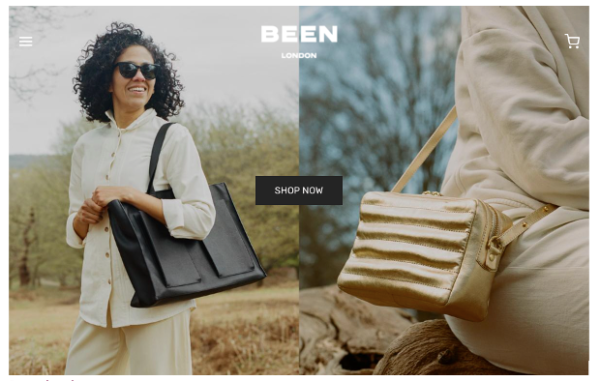
Been creates leather bags from recycled coffee cups and its founder Genia Mineeva leads an all-women team. Genia started as a political journalist in the BBC, but later went on to study Sustainable Value Chains at Cambridge University and Accessories Design at the London College of Fashion. In collaboration with “one of the last bag-makers in East London” the brand launched in 2018, with a mission to transform recyclable waste that hadn’t be put to use yet into beautiful bags.
2. Sabbina
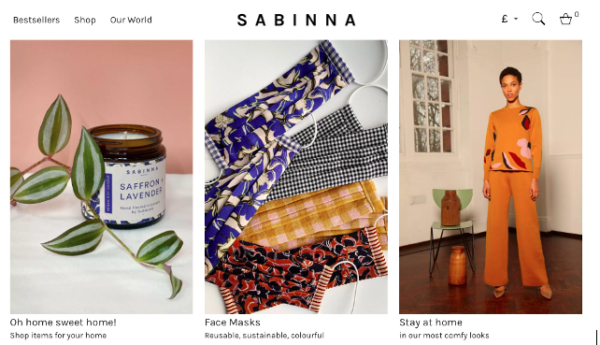
Another woman-led brand, Sabinna, offers a wide selection of products that ranges from quality daywear and eveningwear to knitwear, accessories, vegan candles and prints. All their production takes place in Europe including in their studios in East London and Vienna. Their garments are made almost exclusively from natural fibres and they focus on producing what’s actually needed instead of on the type of mass production that leads to waste. Founder and designer of her namesake brand, Sabinna Rachimova, is a Central St. Martins graduate and in 2019 she was named as one of the Forbes 30under30. In 2017 Sabinna’s brand also won the Fashion Futures Award presented by Decoded Fashion and the British Fashion Council.
3. Rozenbroek
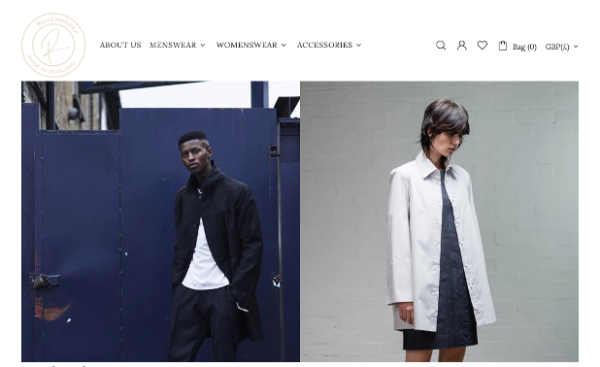
Rozenbroek produces high quality clothing for women and men. All of its production takes place in a Yorkshire factory which is run by solar power. The company only uses organic fabrics and its packaging is all recycled, recyclable, and compostable or biodegradable. Founder and designer Jade Rozenbroek previously worked for fashion labels Marc Jacobs, Burberry and Versace, and has managed to create a successful brand that caters to “conscious consumers”.
4. Petit Pli
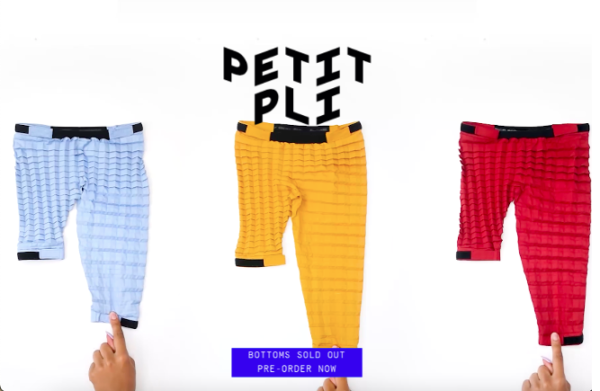
Offering innovation at its finest, Petit Pli creates clothes that grow with the children wearing them. The founder of the brand, Ryan Mario Yasin, is a trained aeronautical engineer whose mark on the future of sustainable fashion comes in the form of adjustable clothing for kids that by prolonging the clothing’s lifetime cuts down significantly both on waste and the production of C02. The clothes can grow up to seven sizes which means one garment from Petit Pli can take the place of seven other garments that little ones outgrow in months. The brand has already been featured in many major publications including Vogue, and has won several awards.
5. Henri
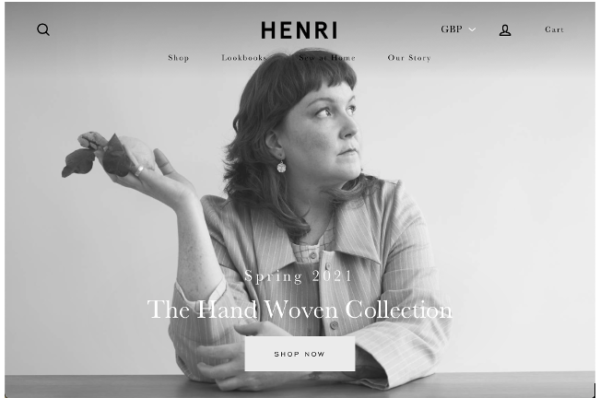
Henri is based in Hackney and was founded by Hetty, a London College of Fashion graduate who stands strongly by her ethos which is to create timeless pieces that can withstand time due to their high quality. Instead of producing garments based on trends that come and go, Henri gradually expands the collection by adding ‘classic’ garments that then stay part of the collection for a long time. Henri works with 100% natural fibres and is committed to responsible sourcing.
Fashion does have a future, but it looks nothing like its past. It’s important that we educate ourselves on the environmental issues that affect fashion, and that we make responsible decisions about what we purchase. Whether you’re a simply a fashion enthusiast or trying to make it within the fashion industry, there are ways to satisfy your love of clothes while still protecting the planet.

